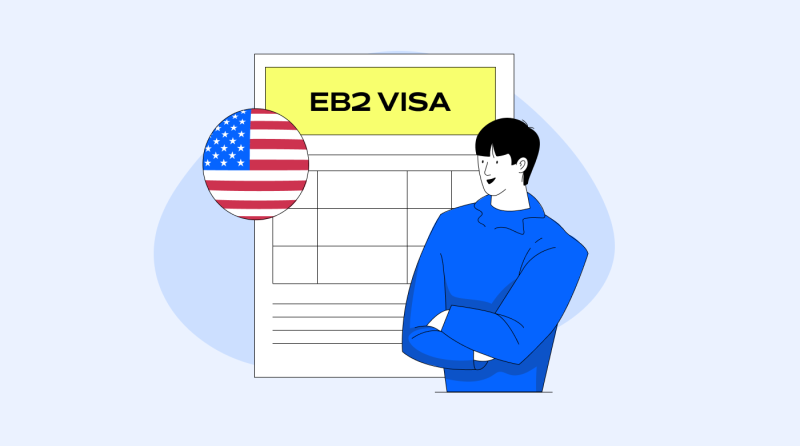
International payroll processing: providers, types, and best practices
Learn how to manage international payroll processing for your globally distributed team from Remote’s global employment experts.
Payroll processing is strategically critical
Today, companies of any size can easily hire global talent. But paying them accurately and compliantly poses a different challenge.
As well as ensuring that they are paid on time, you need to navigate the many local compliance and taxation requirements that come with hiring abroad. And if you’ve got people in multiple locations, this can get pretty overwhelming, pretty fast.
This is why it’s key to land on the right solution. Your global payroll platform shouldn’t just be an administrative tool. You need a strategic asset that allows you to hire and pay the best people globally, and avoid non-compliance with maximum efficiency.
What you'll learn
In this guide, we’ll help you identify the right type of global payroll provider for your business. We’ll also delve into some of the best practices for processing international payroll, and answer some of the most common questions from leaders responsible for managing payroll.
What is international payroll processing?
How to pay your global employees
Payroll is a general term that encompasses the various processes involved in paying your employees. These include:
Salary calculation
Benefits administration
Tax deductions and withholding
Overtime
Record-keeping
Payroll tax forms
Compliance with all relevant tax and labor laws
When you have — and pay — employees in different countries, this is global payroll.
Of course, for global companies (or companies looking to expand) these processes quickly become more complex — especially in terms of compliance and tax.
Key considerations of international payroll processing
Let’s look at some of these processes in more detail. If you want to expand your hiring across borders, you’ll need to consider the following:
Labor and employment laws vary from country to country (and sometimes by state or province too). You’ll need to ensure that you understand what each location mandates in terms of minimum wage, paid and unpaid leave, overtime, and break allowances.
Tax laws also differ between locations, with different rates, obligations, reporting requirements, and timelines.
Salaries and wages need to be calculated correctly and promptly. In some countries, such as the US, you also need to take into account differences between salaried and hourly workers.
Employee benefits must be calculated, accounted for, and compliant with your employees’ local regulations. In some countries, certain benefits are required by law, while in others they may not be. This could include health and dental insurance, life insurance, retirement provisions, and protected PTO.
Methods and timelines of payment may differ by location. In some places, employees must be paid at least once per month, while in others they must be paid every two weeks. This can differ based on other factors, too, such as the employee’s role.
To effectively manage all these payroll processes, you need time, resources, and local expertise. And for many businesses — especially smaller ones — that isn’t a realistic option.
As a result, it’s becoming increasingly common for businesses to outsource their payroll, with 64% of companies doing so according to a 2021 study by EY.
But for international companies, what does this look like? How does it work? And what type of solution do you need?
Here are the three main services offered by global payroll processing providers:
1
Global employment services
If you don’t own a legal entity in your employee’s country, you’ll need to hire, manage, and pay them using an employer of record (EOR) — like the one offered by Remote. As the name suggests, EORs act as the legal employer, enabling you to hire workers in a given country quickly, efficiently, and compliantly. This approach is perfect for businesses that want to scale quickly and be flexible. With our EOR service, Remote manages payroll, benefits administration (including equity incentives), and day-to-day HR needs, and ensures that you are fully compliant with all relevant regulations. This allows you to focus on finding the right people and running your business.
2
Localized payroll services
If you do own a legal entity in your employee’s country, you can either manage payroll yourself internally, or outsource. Remote provides localized payroll services through our Global Payroll platform. This option is more suitable for companies that have already made significant investments in a country and plan to maintain a sizable in-country workforce. Under this approach, you remain the legal employer but Remote (or your chosen provider) handles payroll. You are responsible for complying with local legal requirements.
3
Contractor management services
When paying independent contractors, things are slightly different. Many companies default to paying international workers as contractors because it’s easier. However, if you do this, you need to be careful to avoid misclassification. This occurs when a contractor is treated like an employee, but without receiving any of the associated benefits or protections. If you are found to have misclassified contractors, you can face legal action, resulting in large fines and reputational damage. Because countries have different guidelines on who qualifies as an employee, your global payroll solution is your first defense. Remote can help ensure that you avoid misclassification, enabling you to easily convert contractors into employees and allowing you to quickly and easily manage your bona fide contractors.
Partner-dependent or owned entity?
Global payroll providers usually take one of two forms: a partner-dependent international payroll service, or an owned-entity global payroll service — like Remote.
Both types generally provide all three services mentioned (global employment, localized payroll processing, and contractor management), and can handle payroll in countries across the world.
So which one should you use?
Partner-dependent payroll providers
Partner-dependent payroll providers outsource their services to — and are reliant on — third parties in the countries they operate in.
There are a usually lot of downsides to this approach, including:
Increased costs
Hidden fees
Increased waiting times
Involvement of unknown third parties
Generally poor experience for employees
Limited IP protections
Working with a partner-dependent service may make sense in the short term, but if you’re planning to scale your growth, it’s generally advised to avoid this option.
Owned-entity payroll providers
Owned-entity providers deliver payroll, benefits, HR, and compliance services directly. They own their own entities in the countries they cover, so they do not have to outsource.
Remote is an owned-entity solution. As a result, we provide a hugely positive experience for both employers and employees, with no hidden costs, robust security, and strong IP protections.
International payroll processing: best practices
Once you know which type of global payroll processing provider you need, keep the following points in mind:
Choose your global payroll partner carefully
It’s important to select an international payroll processing partner that understands your needs and — crucially — can meet them at scale. You don’t want to be moving from provider to provider as you grow, or having to rethink or delay your hiring plans because your provider can’t action them.
Specifically, your chosen partner should:
Have local, on-the-ground experts in all the countries it operates in
Fully understand and monitor changes to all local employment and tax laws
Own it’s own entities
Be open and upfront about all fees and payments
Provide the highest standard of security and data protection
If you plan to go down the global employment services route, it’s also recommended to opt for a provider that:
Is fully compliant with all labor and tax laws in each country it operates in
Allows you to handpick and offer statutory and supplementary benefits, including health insurance, retirement plans, and equity incentives
Streamlines the entire HR process into one platform, including HRIS
Provides quick, actionable support whenever it’s required
Remote ticks all these boxes. To learn more about how we can deliver your global payroll and global HR needs, speak to one of our friendly experts today.
“If it's up to me to understand local taxes and compliance or anything that's country-specific, something will probably get missed and problems can happen. But Remote has it all covered. They're doing the correct payroll, taxes, and everything else along the way. That peace of mind is the top thing for me." Stefan Kende, COO at Swell
Prioritize the employee experience
When vetting potential payroll partners — and afterwards — keep your team top of mind. Don’t just opt for the cheapest provider; consider the effect it’s going to have on your employees’ day-to-day experience.
It’s not just about peace of mind for your people, either. If they have a negative experience, or your payroll provider develops a pattern of late or inaccurate payments, your team members will become frustrated and disengaged — and potentially start looking elsewhere.
Think closely about benefits, too. Work with your provider to identify and provide your team members with the benefits they actually care about, and ensure they understand and appreciate the responsibility of being your company’s payroll representative.
Avoid misclassification risk
As mentioned, it’s critical to clarify the employment relationship between you and your team members in each country.
If you determine a team member’s hours, wages, roles, and responsibilities, and typically provide them with the necessary tools and equipment, they should generally be classed as an employee.
If, however, your team member sets their own schedule, provides their own tools, and does not work exclusively for your company, they should be classed as an independent contractor. Contractors often (but not always) work on specific projects.
It’s important to understand this difference. In most places, employees are entitled to statutory benefits and protections, whereas independent contractors are usually not. You are also usually responsible for withholding tax from employees, whereas contractors are responsible for filing and paying their own taxes. This has a significant effect on your payroll planning and processing.
The penalties for misclassification can be costly, too. As well as heavy fines, backdated taxes and benefits, and legal fees, you may be banned from working with contractors in a particular country, and even potentially face criminal charges.
Remote helps ensure that you classify your team members correctly, and avoid such a scenario. We can also easily convert your contractors into employees if required.
“A common misconception is that it’s difficult or impossible to hire an internationally-based employee or contractor. Remote makes it simple to do both, so companies can easily work with contractors and employees for various purposes and have peace of mind that the individuals are classified appropriately.” Sam Ross, CLO at Remote
Think closely about your goals
If you’re planning on opening an entity in another country, that’s fine. But remember: working with a global employment partner can enable you to meet those same short- and medium-term growth goals — as well as laying a scalable foundation for your long-term goals.
Consider, too, that the cost of launching a new entity in another country can be significant. The time, complexity, and demand on your internal resources makes this impractical for many companies — especially smaller ones. Partnering with an EOR can often be a faster, more cost-effective solution for your business, removing the need to hire expensive in-house specialists.
"If we coordinated everything in-house, I’d need to hire four extra people to manage entities, local solicitors, tax firms, accountants, payroll, and translation services; it would cost upwards of $500,000 extra per year. Remote takes that burden off of our plate." Luke McKinlay, VP of Finance at Fountain
In reality, it all depends on your objectives, your budget, and your preference. If you’re unsure which approach makes the most sense for your business, we can lay out your options and help you identify the right one. Whether you want to focus on your own entity or work with an EOR, we can provide a flexible, scaleable, and secure payroll solution.
Extra payroll management research
The easy, compliant way to manage global payroll processing
If you are planning to grow your workforce, a reliable international payroll solution can be an absolute game-changer.
No matter how big your business is or what your expansion goals are, Remote can carry you through the pitfalls and ever-changing complexities of global payroll. Our integrated, all-in-one platform calculates and runs your payroll accurately, compliantly, and quickly, saving you time and resources — and taking a huge weight off your plate.
To learn more about how we can make global payroll easy, schedule a call with one of our experts — or book a demo today.
Global payroll information for specific countries
These are a few of our most-viewed countries. Visit our Country Explorer to learn more about global payroll for specific countries.
International payroll processing FAQs
Want to know more about international payroll management? Here are some of the most commonly asked questions:
Your international team members usually receive payment in the same way as your domestic employees: directly into their personal bank account. As with domestic employees, you will first need to calculate and withhold any relevant taxes, contributions, and benefits (see below).
If you have your own entity, you will be responsible for making these payments yourself, typically from your business bank account in that country. However, if you work with a payroll provider (either a global employment partner or a localized payroll partner), you typically submit your payroll funds and the provider distributes them accordingly.
Note that, for contractors, the method and currency of payment should be established in your contractor agreement. Some contractors may insist on being paid through a certain channel, which you may not be comfortable with (and vice versa), and there may be restrictions on which currencies you are allowed to pay in. Remote’s Contractor Management platform allows you to manage and pay contractor invoices quickly and easily in multiple currencies, and through multiple methods.
In general, payroll calculation involves allocating salaries, withholding, and benefits. With global payroll, employers must do this while also complying with the tax, employment, and labor laws of every country where they have employees.
Unsurprisingly, this can be a complex process. To ensure you are calculating your payroll correctly and compliantly, you can either hire internal specialists for each country, outsource to local third parties — or use a centralized global payroll platform, like Remote.
The amount you pay your international employees depends on your company’s budget and model. Some companies opt to pay a single rate regardless of location, while others base salaries on geo ranges, local market rates, and costs of living.
For example, imagine you’re advertising for a role that, in London, would pay £80,000 per year. Some companies may use that as a baseline and offer it to the successful candidate, no matter where in the world they live.
Conversely, other companies may adjust that £80,000 to the candidate’s local market, taking geo ranges, local expectations, and local rates into account.
The approach you take is up to you. To ensure your offers are competitive, do your research — and look closely at the kinds of benefits you’ll need to offer. Remote can help you understand local salary ranges and tailor competitive benefits packages to local markets.
“Something I hadn't anticipated but really appreciated was Remote's benefits offering. This enabled us to work out what someone in California would expect, and how much it would cost us as a business. In the end we were able to make a really great and professional offer to our prospective employee, whereas without Remote we'd have no idea what was expected or appropriate.”
Ed Nutter, CEO of Midspace (formerly Clowdr)
When it comes to compliance, taxes, and employment, are your international employees governed by the laws of their country — or the laws of yours?
In general, your company should fully comply with the laws of the country where your business is headquartered.
However, when hiring talent in other countries, you must adhere to the laws and regulations in those jurisdictions. For example, if you’re based in Australia and you hire an employee in Germany, you must provide the relevant PTO, make the relevant contributions (such as social security employer contributions), and adhere to the employment conditions as laid out under German law.
Sometimes, you may have additional responsibilities, depending on where you’re based. For instance, if your business is based in the US and you hire contractors in other countries, you will need to submit certain tax forms — such as W-8 BEN — to the Internal Revenue Service (IRS).
Remote can help you understand your compliance obligations in different countries, and help ensure that you meet them.
“With employment laws and regulations varying from country to country, we don’t have time to go through the bureaucratic and time-consuming process of setting up a new legal entity every time we make a new hire. Remote allows us to effortlessly onboard new employees, safe in the knowledge that we are fully compliant. We are free to select the best candidates available, enabling us to focus on growing our business.”
Andy Firth, Finance and Operations at Nearcut
Generally, US-based companies cannot legally make direct payments to overseas employees (note that this is not the case for independent contractors).
As mentioned, you will either need to pay your international employees through your own legal entities in those countries, or through a global payroll service.
If your business is based in the US and you want to understand what your options are, our friendly experts can explain everything in detail.









